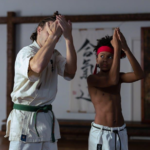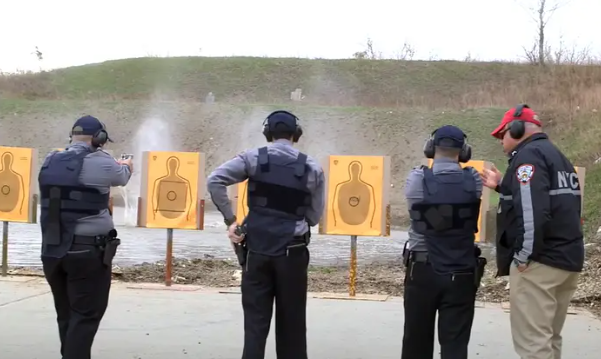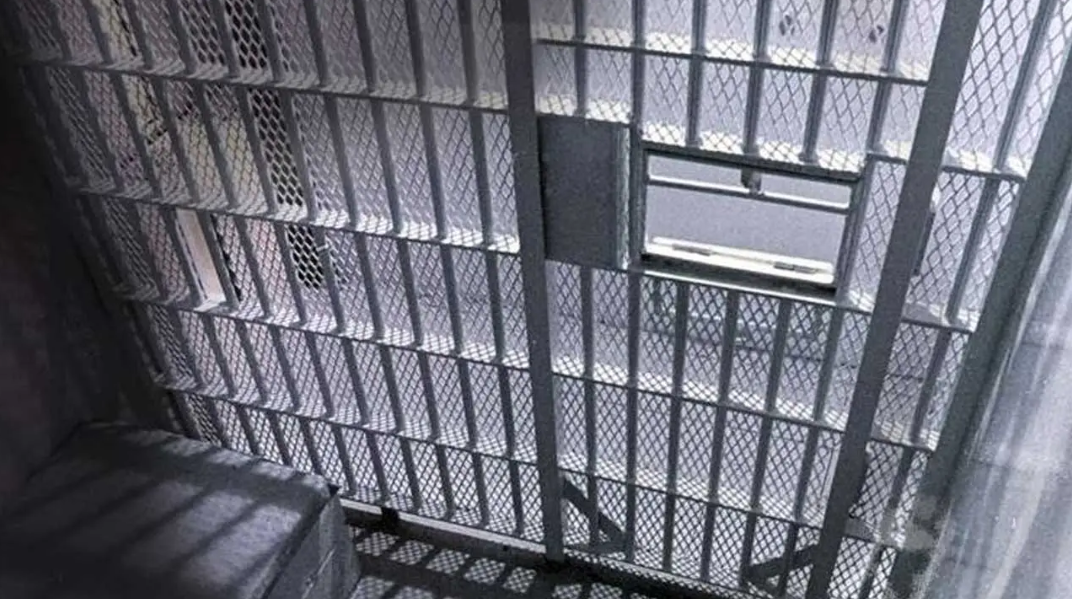I have written many training articles and trained many individuals who I hope never need the tactics and strategies that I have shown. I often wonder while pondering and reminiscing of old times hoping that I told each student everything that I knew or have shown them the details of the tactics necessary to subdue the resisting individual. However, I always return to the same thought, what makes a warrior? In a very real sense, corrections employees serve more time in prison than many inmates, they just serve it in eight-hour installments! The famous criminologist, James B. Jacobs noted, “A career correctional officer in effect commits himself to a life sentence in prison.”
The corrections profession has evolved into American Icons, the Warrior Elite. Why? What makes them tick? Why does the individual officer stand head and shoulders above all other Professional Warrior wannabes? The answers are complex. True, corrections officers today are a Para-military force, but it is much more. Correctional officers are an elite fraternity, a spiritual brotherhood. Entry into our ranks is a calling. For most, earning the title is closely akin to becoming a priest. Yet, the ethos of the Warrior Culture of correctional officers is simple: prowess in conflict.
Each correctional officer, past and present, has entered more than just the Brotherhood. He has become, and will always remain, part of a mystical fellowship of valor. He must comply with hallowed rituals. He must conform to an uncompromising code of honor, discipline, and personal integrity. Commitment to his agency and moral strength become the norm. Throughout history, these virtues have sustained Warriors during the chaos and perils of combat. You may be able to win without fighting, and that is preferable. But, it is harder, and the enemy may not cooperate.
The mission and the accomplishment of that mission are grander than your own well being. Warriors have a calling and those individual warriors would serve a higher calling even if there was no conflict to fight. Some individuals were meant to call 911; and some individuals were meant to be 911. What make courageous individuals knowingly and willingly walk into a maximum security prison, the so called, Belly of the Beast, or respond effectively to a call for assistance in a rioting pod? A modern day correctional warrior.
Of every one hundred men, ten shouldnt even be there;
Eighty are nothing but targets;
Nine are real fighters.We are lucky to have them.They make the battle.
Ah; but one; one of them is a Warrior.And he will bring the others back.
Heraclitus (Circa 500 B.C.)
Once they have earned the title and entered the Brotherhood of corrections, then the new warrior can draw upon the legacy of his newly acquired brotherhood. Therein lays their strength. In return, the strength of the agency lies in the individual officer. The character (often defined as “what you are in the dark”) of these warriors is defined by the three constant Organization Values: honor, courage, and commitment.
HONOR: Honor requires each officer to exemplify the ultimate standard in ethical and moral conduct. Honor is many things; honor requires many things. A law enforcement and correctional officer must never lie, never cheat, never steal, but that is not enough. Much more is required. Each officer must cling to an uncompromising code of personal integrity, accountable for his actions and holding others accountable for theirs. And, above all, honor mandates that an officer never sully the reputation of the profession.
“Honor never grows old, and honor rejoices the heart of age. It does so because honor is, finally, about defending those noble and worthy things that deserve defending, even if it comes at a high cost. In our time, that may mean social disapproval, public scorn, hardship, persecution, or as always, even death itself.
The question remains: What is worth defending? What is worth dying for?
What is worth living for?
William J. Bennett
United States Naval Academy
November 24, 1997
COURAGE: Simply stated, courage is honor in action, and more. Courage is moral strength, the will to heed the inner voice of conscience, the will to do what is right regardless of the conduct of others. It is mental discipline, an adherence to a higher standard. Courage means willingness to take a stand for what is right in spite of adverse consequences. This courage, throughout the history has sustained officers during the chaos, perils, and hardships of conflict. And each day, it enables each officer to look in the mirror, and be proud.
The harder that you work; the harder it is to surrender.
Vince LombardiCOMMITMENT: Total dedication to profession and brotherhood. Teamwork. All for one, one for all. By whatever name or cliché, commitment is a combination of selfless determination and a relentless dedication to excellence. Officers never give up, never give in, and never willingly accept second best. Excellence is always the goal. Commitment never dies even after the badge is retired or a folded flag is handed to your significant other.
Nearly all men can stand adversity, but if you want to test a mans character, give him power.
Abraham Lincoln
Honor, Courage, Commitment, they make up the bedrock of the character of each individual officer. They are the foundation of the Organization these three values, handed down from generation to generation, have made law enforcement and correctional officers the Warrior Elite. Speaking specifically about correctional officers, but I think that it also applies to law enforcement officers, C.T. Mangrum stated;
There is not much that average correctional officers can do about their external environments, but they can change their self-images, gain pride, and place emphasis on professional behavior. Officers must be committed to professionalism and must be competent, credible, and confident. Commitment comes from action, perseverance, and attitude. Competency must be gain and maintained. Credibility must be earned internal and external to the individual and the organization. Confidence … flows from these other attributes and characteristics. It is a widely accepted belief that the officer who has a solid educational background, professional supervision, ongoing in-service training, and continuous professional development will be better able to cope with the external influences that will have a continuing impact on corrections.
CT Mangrum
It is not the critic who counts, not the one who points out how the strong man stumbled or how the doer of deeds might have done them better. The credit belongs to the man who is actually in the arena, whose face is marred with sweat and dust and blood; who strives valiantly; who errs and comes up short time and time again; who knows the great enthusiasms, the great devotions, and spends himself a worthy cause; who if he wins knows the triumph of high achievement; and who, if he fails, at least fails while daring greatly, so that his place shall never be with those cold and timid souls who know neither victory or defeat.
Theodore Roosevelt
Draw upon the pride and knowledge of our predecessors before us and revel in the knowledge that you walk among greatness. The profession that you have chosen is one of greatness and pride. The image that you create will not only affect you but the entire image of us all. Take pride in yourself and in your profession. Walk tall and revel in the path of greatness that our forefathers cut into society. Train as if your life depends upon it; because, someday it just might.
Why does it take a crisis to make us aware of what is important? Typically, it takes a crisis to make us change the way we do business. Today, corrections are in such a crisis. As unprecedented demands are placed on it, as violence escalates among our inmates, as the threat of terrorism persists, today’s officers confront a range of issues and challenges more ominous than their counterparts of even two decades ago could have imagined. Agencies must move to a new style of leadership that will assist them in increasing public trust and increase effectiveness in resolving and avoiding future institutional crises.












